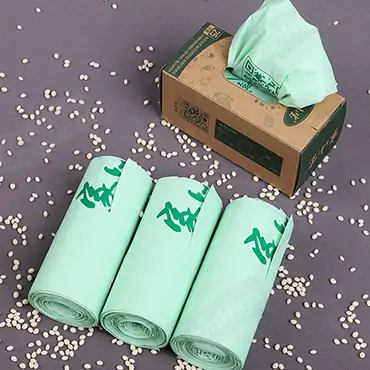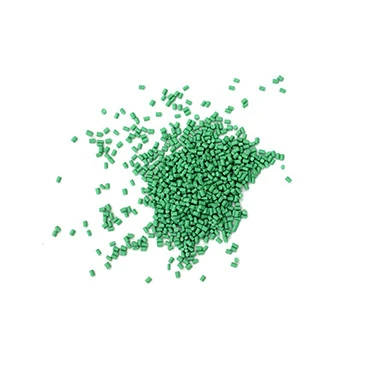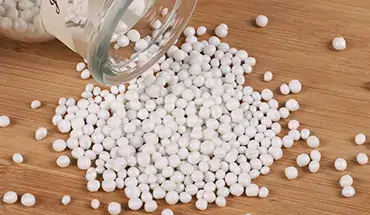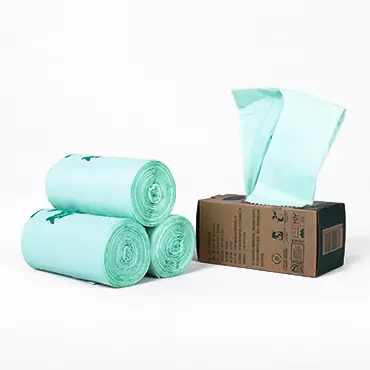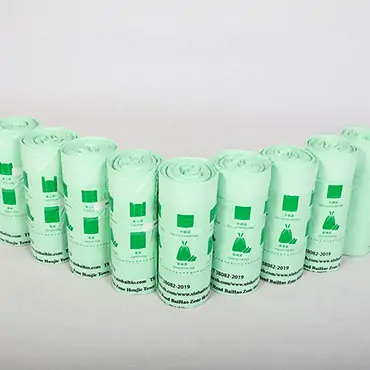 In today’s world, where sustainability is no longer a buzzword but a necessity, even the humble trash bag is under scrutiny. As a business dealing with waste management, supplying packaging, or simply using a lot of trash bags, you’ve probably come across the terms “compostable” and “biodegradable.” They sound similar. Both promise a greener way to deal with garbage. But are they truly interchangeable? The answer, as you’ll soon discover, is a resounding no.
In today’s world, where sustainability is no longer a buzzword but a necessity, even the humble trash bag is under scrutiny. As a business dealing with waste management, supplying packaging, or simply using a lot of trash bags, you’ve probably come across the terms “compostable” and “biodegradable.” They sound similar. Both promise a greener way to deal with garbage. But are they truly interchangeable? The answer, as you’ll soon discover, is a resounding no.
Understanding Compostable Trash Bags
What Exactly are Compostable Trash Bags?
Imagine a trash bag that magically transforms into nutrient-rich soil, like a caterpillar turning into a beautiful butterfly. That’s the promise of compostable bags. These eco-friendly wonders are typically made from plant-based materials like corn starch, potato starch, or other renewable resources. They’re designed to break down completely in a composting environment, leaving behind nothing but beneficial compost.
The Science of Composting: How Do These Bags Break Down?
Composting is nature’s recycling system. It’s a process where microorganisms, fungi, and other tiny critters feast on organic matter, breaking it down into a dark, crumbly substance called compost – gardener’s gold! Compostable trash bags are made to join this party. Under the right conditions – warmth, moisture, and plenty of oxygen – these bags decompose into water, carbon dioxide, and biomass, becoming one with the compost.
The Role of Industrial Composting Facilities
Now, you might be thinking, “Can I just toss these bags into my backyard compost bin?” While some compostable trash bags are certified for home composting, many require the higher temperatures and controlled conditions found in industrial composting facilities. These facilities are like five-star resorts for organic waste, ensuring that compostable trash bags break down efficiently and effectively.
Demystifying Biodegradable Trash Bags
What Does “Biodegradable” Really Mean in the Trash Bag World?
“Biodegradable” is a bit of a slippery term. It suggests that a material will eventually break down in the environment. But here’s the catch: almost everything is technically biodegradable, given enough time. Even regular plastic will eventually decompose, but we’re talking hundreds, if not thousands, of years! So, when it comes to trash bags, “biodegradable” can be a bit misleading.
The Different Types of Biodegradable Plastics
Biodegradable trash bags are often made from a blend of traditional plastics and additives that are supposed to speed up the decomposition process. There are also bioplastics, which are derived from renewable sources like cornstarch. However, just because a bag is made from bioplastic doesn’t automatically make it compostable.
PLA, PHA, PBS: A Quick Breakdown
You might encounter acronyms like PLA (polylactic acid), PHA (polyhydroxyalkanoates), and PBS (polybutylene succinate) when researching biodegradable trash bags. These are types of bioplastics with varying degrees of biodegradability. PLA, for example, is often derived from corn starch and can be compostable under specific conditions. PHA is produced by microorganisms and is generally considered more readily biodegradable. PBS is a synthetic polymer that can be either bio-based or petroleum-based, and its biodegradability depends on its composition.
Compostable vs. Biodegradable: The Head-to-Head Comparison
Raw Materials: Plant-Based vs. A Mix of Sources
This is a key difference. Compostable trash bags are usually made entirely from plant-based materials. Biodegradable trash bags, on the other hand, can be made from a mix of petroleum-based plastics and plant-based materials, or sometimes entirely from bioplastics.
Degradation Conditions: Temperature, Moisture, and Microbes
Compostable trash bags need specific conditions to break down properly – think of them as Goldilocks needing her porridge just right. They thrive in the warm, moist environment of a compost pile or an industrial composting facility. Biodegradable trash bags may break down faster than regular plastic bags, but their decomposition rate can vary widely depending on the environment. In a landfill, where oxygen is limited, they might not break down much faster than conventional plastic.
Environmental Impact: Is There a Clear Winner?
Compostable trash bags, when composted properly, have a significantly lower environmental impact. They return valuable nutrients to the soil, reduce landfill waste, and don’t leave behind harmful microplastics. Biodegradable trash bags are a step in the right direction, but their impact depends heavily on how they’re disposed of. If they end up in a landfill, their benefits are significantly reduced.
Disposal Methods: Landfills, Composting, or Recycling?
Here’s where it gets tricky. Compostable trash bags are designed for, well, composting. Ideally, they should be sent to an industrial composting facility if one is available. Some are certified for home composting, but this requires a well-maintained compost system. Biodegradable trash bags are generally not suitable for composting. They might break down into smaller pieces, but they won’t fully decompose into compost. And while some types of bioplastics can theoretically be recycled, the reality is that many recycling facilities are not equipped to handle them.
The Business Case for Compostable Trash Bags
Meeting the Rising Demand for Sustainable Products
Consumers are increasingly conscious of their environmental impact, and they’re demanding sustainable products. As a distributor or supplier, offering compostable trash bags allows you to tap into this growing market. It’s not just about being eco-friendly; it’s about meeting customer expectations and staying ahead of the curve.
Certifications and Standards: Building Trust with Customers (B2B Focus)
In the B2B world, trust is paramount. When you’re selling compostable trash bags, certifications like BPI (Biodegradable Products Institute) and TUV Austria are crucial. They provide independent verification that your products meet specific composting standards. These certifications are like a badge of honor, assuring your customers that they’re getting a truly compostable product.
Cost Considerations: Long-Term Value vs. Upfront Investment
Let’s be honest: compostable trash bags often have a higher upfront cost than conventional or even biodegradable trash bags. But it’s essential to look at the long-term value. By offering compostable trash bags, you’re investing in a sustainable solution that resonates with environmentally conscious customers. This can lead to increased customer loyalty, a positive brand image, and potentially even higher profit margins in the long run.
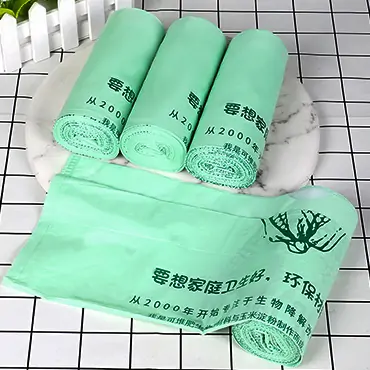
Making the Right Choice for Your Business
Assessing Your Customers’ Needs and Values
As a business, your priority is to understand your customers. Are they actively seeking sustainable solutions? Do they value environmental responsibility? If so, compostable trash bags are likely to be a strong selling point.
Considering Your Local Waste Management System
Before making a decision, research your local waste management system. Are there industrial composting facilities available? Are there separate collection programs for organic waste? This information will help you determine the feasibility of offering compostable trash bags and ensuring they are disposed of properly.
Conclusion
The choice between compostable and biodegradable trash bags might seem small, but it’s a decision that reflects a larger commitment to sustainability. As a business, you have the power to influence your customers and contribute to a greener future. By choosing compostable trash bags, you’re not just offering a product; you’re offering a solution – a way to reduce waste, enrich the soil, and protect our planet. Let’s work together to make a difference, one trash bag at a time.
FAQs
1. Are all compostable trash bags the same?
No, not all compostable bags are created equal. Look for certifications like BPI or TUV Austria to ensure they meet specific composting standards.
2. Can I compost compostable trash bags in my backyard?
Some compostable trash bags are certified for home composting, while others require industrial facilities. Check the label for specific instructions.
3. What happens if compostable trash bags end up in a landfill?
While they will eventually break down, they may do so at a slower rate than in a composting environment and may produce methane gas.
4. Are compostable trash bags more expensive?
They typically have a higher upfront cost, but they offer long-term value in terms of environmental benefits and customer appeal.
5. Where can I buy compostable trash bags in bulk?
You can purchase compostable trash bags in bulk from manufacturers and suppliers like ShinHigh Bio. Contact us today to discuss your needs.
6. What is the shelf life of compostable trash bags?
Compostable trash bags generally have a shelf life of 12 months when stored in a cool, dry place.
7. Are compostable trash bags as strong as regular plastic bags?
Yes, compostable trash bags are designed to be durable and strong, and capable of holding various types of waste.
8. Can I use compostable trash bags for all types of waste?
Compostable trash bags are ideal for organic waste like food scraps and yard debris. For other types of waste, check your local waste management guidelines.

